When CTV’s Your Morning rang me up and asked if paying for premium gasoline was worth it — I said what I often say about stuff I’m not 100 per cent sure about.
“I don’t know.”
Little did I know (at that point) that “I don’t know” was the perfect know-it-all answer to something I know little about. Next thing I knew (for sure) was the producer wanted me to settle a mini-debate (on live television) with the people who bring you CTV’s Your Morning.
Perfect.
As an owner of one diesel sipping SmartCar ForTwo and three human-powered bicycles, it was my job (on live television) to settle the score between two groups of people I had never met. One the one side were the people who prefer to pay the price for premium at the pump, on the other were those who refuel with regular gas.
Oh, and to fill the segment I should also talk about other ways to waste money.
Perfect.
Because I’m a keener and I like to know about stuff I don’t know about while settling the score with people I’ve never met (on live television) I agreed to talk about gas and awesome ways to waste money.
Here’s the story and the clip from CTV’s Your Morning (which was awesome fun because I also met Ben Mulroney): Three products you shouldn’t be spending money on.
And yes, I dressed like an orange pylon to celebrate surging fuel prices. Smile.
Premium Gasoline
Is premium gasoline worth it? Read your vehicle’s owner manual or spy inside your car’s fuel door — if your machine says it needs premium fuel then you should buy premium. If your car doesn’t required premium then “premium” doesn’t mean “better” — it means you’re paying a “premium” for it! Bummer, I know.
Premium gasoline costs around 10¢/Litre more than regular fuel — that’s 10 per cent extra you don’t need to pay, or around $5 for a $50 fill-up. Premium fuel has a higher octane rating, required by some engines — often those with a turbocharger. These high-performance cars need the higher octane so the engine fires correctly under the higher compression in the motor. Other cars run just fine on regular.
Bonus Stuff:
- Check out my Gas Mileage Calculator to see if your car is a gas-guzzling machine.
- 10 Ways to Save Money on Gas
- When to buy a more fuel-efficient car calculator.
Bottom Line: Buy regular gasoline if your car doesn’t require premium fuel. BTW, various news sites report that in the last 12 months US drivers have wasted $2.1-billion by unnecessarily buying premium gasoline. (Marketwatch and CBS)
Bottled Water
Sustainable consumers save money! — It’s a line I repeat daily in the media and when I do speeches, and this is especially true when it comes to the disposable economy we’re seeing with bottled water. Look, I don’t care how you calculate it — buying bottled water is a bum deal for consumers and a bummier deal for the environment. There’s a substantial environmental impact with bottling and transporting bottled water, and many plastic bottles end up in the landfill.
Often priced close to the cost of gasoline, bottled water is not cheap and some argue no better than tap water because in many cases it IS tap water. Sigh.
Close to home in Guelph Ontario there’s a sticker campaign targeting consumers of Nestle bottled water.
“TAP WATER! Drink from your faucet and save 630%.” I’m into it.
Bottom Line: Want portable water? Turn on your tap and pour into any insulated flask or inexpensive reusable bottle and POOF you have the convenience of bottled water.
Over The Counter Medication
Are generic over the counter medications (OTC) worth it? Yeppers! I’ve done a number of OTC price checks over the years on everything from headache meds to foot fungus cream and I consistently find OTC meds are up to 30 per cent cheaper than the brand name equivalent.
Bottom Line: Check the ingredient list and dosage to be sure you’re buying the right generic, but since Health Canada requires that generic medications be medicinally equivalent to the better known brand name product you’re covered. More: Price Check Experiment: Are generic drugs worth it?
Mattresses
The last time I squawked about the crazy cost of mattresses was in my book, 397 Ways To Save Money. Since I’ve had some time to sleep on it, I feel rested and financially the same about pillow tops and dense coils. Save your money.
Buy a bed based on comfort, not brand name. Most major manufacturers in North America buy mattress springs from the same company, Leggett & Platt. Because mattress springs boast very similar qualities, try to ignore the marketing flash and base your bed-buying decision on comfort, firmness, lumbar support and cost. Mattresses soften a bit over time, so consider buying one slightly firmer to allow for give.
Don’t get the top model mattress. Top-end mattresses offer luxury features such as extra pillow tops and higher quality piping on the edges. The internal construction of these luxury models is often similar to mid-priced ones, and the attached pillow tops can wear out quickly. Save some money by getting a mid-range mattress and a separate quality mattress pad. This combination will cost you hundreds less, and you can easily clean or replace the mattress pad as needed.
Bottom Line: Top-end mattresses selling for top dollar may contain the same internal construction as mid-priced models, so opt for the less expensive mattress and buy yourself a quality mattress pad or mattress protector to save hundreds.
Coffee Pods
Sustainable consumers save money — I’ve said it once in this squawky piece and I’ll squawk it again because it’s true! I’ve written lots about the crazy cost of coffee pods and their environmental impact in Save 61% by brewing coffee with a K-Cup reusable filter so I’ll save some space. If you can find a reusable coffee pod filter for your coffee pod machine then do it.
Bottom Line: Skip the costly coffee pods. Use a reusable filter and save 61 per cent on your morning brew — that’s $300/year for two cups a day or 41 cents per coffee.
Brand New Kid’s Gear
Most people (including parents) like to swaddle their kids in everything shiny and new. Not me. Heck, I have a rule when it comes to buying stuff that’s going to get stained and thrown and outgrown and used for a short time — it’s my 80/20 rule.
Kid’s Gear Rule: Buy 80 per cent used and 20 per cent new on all kid’s gear, including: clothing, shoes, strollers, furniture, toys, everything. You’ll save up to 95 per cent (even FREE) on everything your kiddlet barfs on by opting for second hand, consignment, thrift, and resale goods.
I love the second-hand economy so much I shop there myself. I bought Chloe’s BOB Stroller with all the attachments and blinging doodads used for $250 and then resold it with zero depreciation for $250. The total cost to me was like, nothing! New, that BOB stroller model with all the attachments and covers and stuff would have sold for $900. Total Savings: 100 per cent.
Used Buying and Selling Tips:
- Local Facebook Buy and Sell Groups are golden for new (and old) parents looking to clothe their kids or furnish a nursery for less. Many seasoned parents just want to GET RID OF THE STUFF so they resell it for pennies on the dollar.
- Stay safe by checking for recall notices on cribs, strollers, and toys.
- Don’t worry if the item has a stain or scratch — your kid will stain stuff too.
- Dish soap and warm water are key for cleaning used gear. Scrub stuff in the tub.
Bottom Line: Make the second-hand economy your first economy for all things kids and you’ll save a small fortune on stuff you’ll need for a short time.
Credit Card Interest
No. Never. Nope.
Paying 19 per cent on your plastic is never a good deal. Ever. And I swear on that Tap AND SPEND chip technology that paying consumer interest is a terrible deal for consumers but an awesome gig for lenders.
Wanna win a small war on plastic? Ask for a better deal by negotiating a lower interest rate. I give you a script and tips now all you have to do is make the call. Go now!
How to negotiate a lower credit card interest rate
Love love love,
Kerry



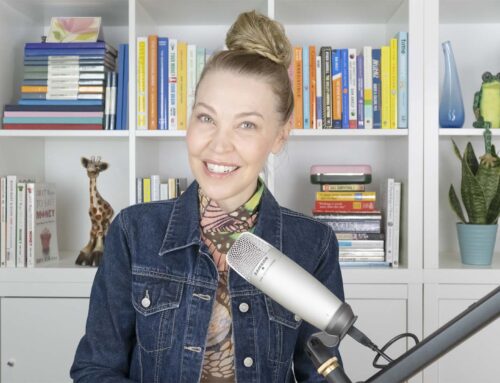
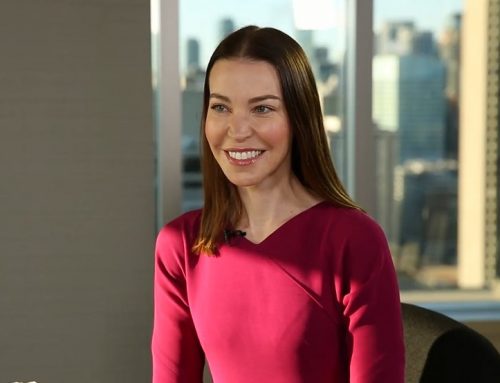
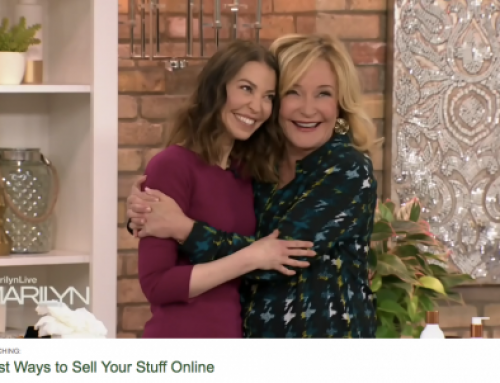
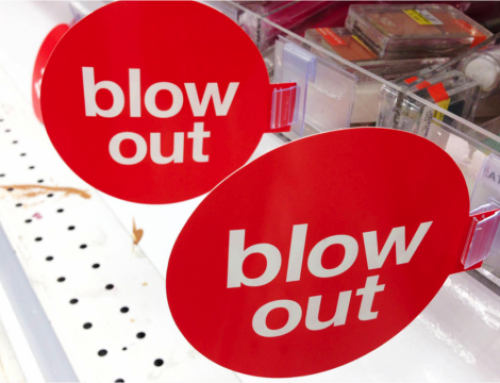
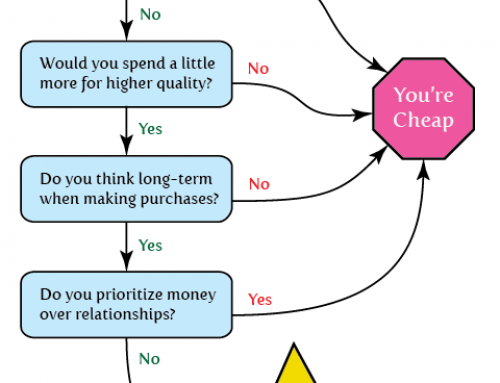
Pod coffee – Guilty as charged – every morning around 7:30 – and I know that buying the packs on sale is still not a bargain for me or the environment.
With Kerry’s guidance over the years, I’ve saved a lot (A LOT) of money avoiding needless wasteful spending. Enough to easily splurge on a more environmentally friendly coffee maker and good quality coffee… Can anyone point me in the direction of a good one-serving coffeemaker? Not a fan of bodum coffee makers.
As always Kerry, I love your advice. It always gets passed on to my kids, though I think at this point they’re part of your newsfeed. Your remarks about the mattresses is particularly appropriate as we are in need of a new purchase in the next several months. Here’s another thought related to mattresses that may be of assistance to frugal folks. We have 2 large dogs, both of them getting elderly and needing a bit of extra padding as they curl up on the (uncarpeted) floor. Our recent solution to finding a dogbed is to look at the local second hand store for a $35 twin mattress. Voila: a dogbed that is easy to vacuum, comfortable for old dog bones, cheap, and lasts for 6 months or more. The space issue may be a drawback for some folks (certainly a grotty looking old mattress in the middle of the living room is probably not a very appetizing idea) but this solution is working well for us.
[…] it worth it? Squawkfox Kerry Taylor looks at the cost of premium gasoline, bottled water, and brand name over-the-counter […]
Generic medicine is a hit and miss with me. I can handle generic pain medication but pepto-bismol is the only thing that works for my upset stomach. Meanwhile, my husband can handle any generic brand. Go figure.
I stopped using bottled water for few years now. My family used to pay the credit card in full every month. Our Toyota car doesn’t need premium gas. Oh, and the coffee, i use the instant coffee. No machine is needed. My electric kettle is working every day to give me boiled water.
My 2 cents on the premium versus regular fuel debate. Most regular fuels contain Ethanol. If your vehicle specifies regular fuel but not Ethanol go with the premium. If not, you may end up damaging your engine. This is true even for small engines like lawn mowers and snowblowers. My vehicle needs premium and I end up buying premium fuel for my lawnmower as well. I make every attempt to buy my fuel at Costco so that my premium fuel purchase is only maybe a penny more than regular fuel at other outlets.
We don’t use premium gas, just regular. My car is fine with it. We do drink bottled water, since tap water has a weird taste (they go overboard with chlorine and it really tastes bad). As for medicine, some generic work great for me and they do save a lot of money
I am using reusable filters as often I can. But a lot of people unfortunatelly don´t care about the environmental protection.
Love this one! I was born and raised in Toronto but relocated to California in 2006. Been here ever since. Couple of thoughts:
Bottled Water: Never purchased or drank it while I lived in Canada. I always drank tap water…moved to Los Angeles, and many people drank bottled water exclusively…Is Toronto water ‘better?’ or was it just a habit…Is it cultural? did bottled water become popular around 2006 when I moved to LA and I just wasn’t in Toronto when it became popular there? hmmmm
Coffee Pods: During the last 10 years in California, I never saw a Nespresso or Keurig coffee maker in any persons home. I can’t name 1 person who has one here (in SF where I live now). I noticed a few years ago that it seemed like all of my friends & family in Toronto had one of these coffee pod thingies in their homes…what happened?? hmmmm
Great post. Excellent tips on saving money.
It is amazing how much people have trouble buying generic and letting go of the brands. For medication it is identical, and many grocery products, very similar.
Definitely spend on a good matress, we spend a third of our life on them and there is no reason to have back pains because of a cheap purchase.